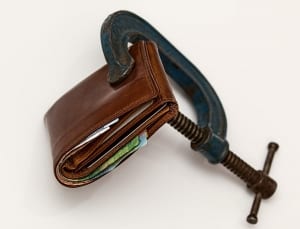Top Tips on How to Reduce Your Debt in 2021

More specifically, people in the UK owed an estimated £1,688.5 billion by the end of October 2020, with this having increased by 21.8 billion year-on-year. This translates to a rise in debt of £412 per UK adult over the year, which is worrying when you consider the wide scale job losses that have already occurred as a partial result of lockdown measures.
In this article, we’ll consider the primary risks of accumulating debt, while offering some tips on how to reduce and effectively manage your burden in 2021.
What are the Risks of Debt?
Debt mounts when you continue to spend outside of your means, and are subsequently unable to repay your individual bills consistently or on time.
As a consequence of this, your individual debts start to accrue late payment charges and interest fees, creating a scenario where even minimum payments do little to eat into your original liability.
While this is problematic from the perspective of unsecured debts (as debt can continue to mount before creditors look to pursue court action), it’s even more damaging when dealing with secured liabilities.
This means debts pertaining to mortgages and car financing, and failing to pay these entities could ultimately cause you to default on your agreements and lose the underlying asset.
Why Online and Mobile Banking are Crucial When Controlling Debt
In the fundamental fight against rising debts, one of the best and most accessible weapons is online (or mobile) banking.
Both entities have become increasingly popular in recent times, with an estimated four out of every 10 UK adults now regularly using relevant mobile banking apps.
Virtual banking definitely offers advantages in the quest to combat debt, not least because you retain instant access to your account and can view transactions in real-time.
This makes it incredibly easy to review your spending and make achievable cash savings, which can in turn boost your disposable income levels and the amount that can be committed to paying off debts.
The type of instant online accounts offered by Monese are especially purposeful in this respect, as they can also be synched seamlessly with third-party budgeting apps to help you manage your spending in real-time.
Most importantly, you can secure a Monese account without needing to undergo a credit check, which may prove crucial for those struggling with debt and a history of missed or late payments.
How Else Can You Look to Manage Your Debts?
By using this type of account and a budgeting app in unison, you can begin to take control of your finances and structure a viable debt repayment plan.
Assuming that your budget has created enough for more discretionary spending, this will help you to concentrate a higher proportion of money on debt repayment and help you to begin repaying more than just the accrual of monthly interest.
Once you’ve begun to repay your debts on a regular and timely basis, you can open a line of communication with creditors and create the opportunity to ask for interest rates to be lowered (either temporarily or permanently).
This will really help the fight against debt, by reducing the time taken to settle accounts and the total amount repayable over time.












Leave a Reply
Want to join the discussion?Feel free to contribute!